The disastrous consequences of foxes, cane toads and other overseas animals settling in Australia are well known. But there can be problems too when our native species move beyond their natural home ranges.

Imagine 6.3 billion snails releasing 23 tonnes of faeces a day. That’s the situation today in the Swan River in Perth, where mud snails now reign supreme.
Their numbers have exploded since they were first detected there in 1954 and, in the river’s lower reaches, they now crowd the bed in densities of up to 400 per square metre. This species is native but its natural range lies more than 3000km away in eastern Australia.
Seagrass beds in the Swan are now under siege thanks to the snail’s success. Before it arrived, the river had few hard surfaces on which small seaweeds could grow. Now, seagrass is being uprooted by snails and smothered by seaweed that dislodges from snail shells at the rate of 433 million fragments a day. Snail faeces are thought to be aggravating the problem by fertilising the seaweed.
We often hear of harmful animals from overseas – foxes, cats, toads and the like – but problems also ensue when our own native species spread from one region to another. In two centuries, hundreds of species in Australia have moved in every possible direction, amounting to a major reshuff ling of the ecological pack. Anything and everything is involved, including spiders, cicadas, earthworms, marsupials, f ish, birds, frogs and even diseases, although only some are regarded with concern.
This story is from the {{IssueName}} edition of {{MagazineName}}.
Start your 7-day Magzter GOLD free trial to access thousands of curated premium stories, and 9,000+ magazines and newspapers.
Already a subscriber ? Sign In
This story is from the {{IssueName}} edition of {{MagazineName}}.
Start your 7-day Magzter GOLD free trial to access thousands of curated premium stories, and 9,000+ magazines and newspapers.
Already a subscriber? Sign In
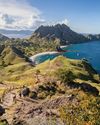
SULAWESI SENSATIONS
There are worlds within worlds and marvels untold waiting to be experienced on Indonesia's remote islands.
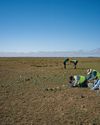
SEARCHING FOR AUSSIE DINOSAURS
Our understanding of where to find ancient life in Australia has been turned on its head by a new appreciation of the country's geology. Now the world is looking to our vast outback as the latest hotspot to locate fossils.
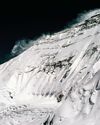
THE HARDEST NIGHT
The first Australian ascent of Mt Everest in 1984 is one of the great feats of mountaineering. Climbed by a small team semi-alpine style, with no bottled oxygen, via the Great (Norton) Couloir, it remains unrepeated 40 years later.
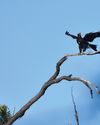
WEDGE-TAILED WONDER
The chance discovery of an eagle nest leads to an extended vigil observing normally hidden behaviours of one of nature's supreme winged marvels.
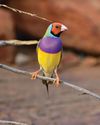
BURDENED BY BEAUTY
Northern Australia's Gouldian finch survives in huge numbers in cages around the world, but its wild population continues to struggle.
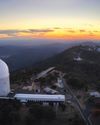
A TELESCOPE FOR A GOLDEN AGE
After a stellar 50 years as one of the country's major scientific assets, the AAT continues to play a major role in keeping Australian astronomy on the world stage.
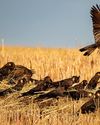
COCKY WHISPERING AT COOMALLO CREEK
This patch of remnant bush on the edge of the West Australian wheatbelt is a place loved by one of Australia's rarest bird species and the man who has studied the site for more than 50 years.

A PIONEERING PAIR
Louisa Atkinson and her mother, Charlotte, were among Australia's earliest authors, and pioneers in women's rights.
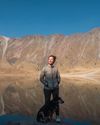
THE LONGEST WALK
Lucy Barnard is walking from Argentina to Alaska -the length of the Americas - on an extraordinary journey of endurance and adventure.
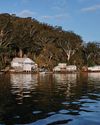
SECLUDED, BUT NOT ALONE
In an era of heightened social isolation, where many of us lead lonely lives, Dangar Island offers the chance to be part of a supportive, connected community.